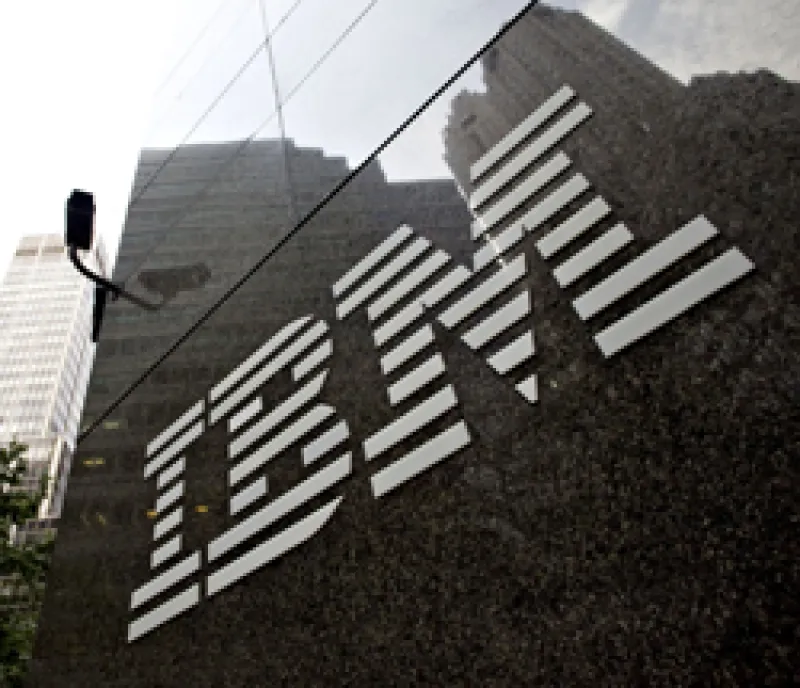
A logo hangs outside the International Business Machines Corp. (IBM) offices at 590 Madison Avenue in New York, U.S., on Thursday, July 16, 2009. IBM is scheduled to report quarterly earnings today after the close of trading. Photographer: Daniel Acker/Bloomberg
DANIEL ACKER/BLOOMBERG

